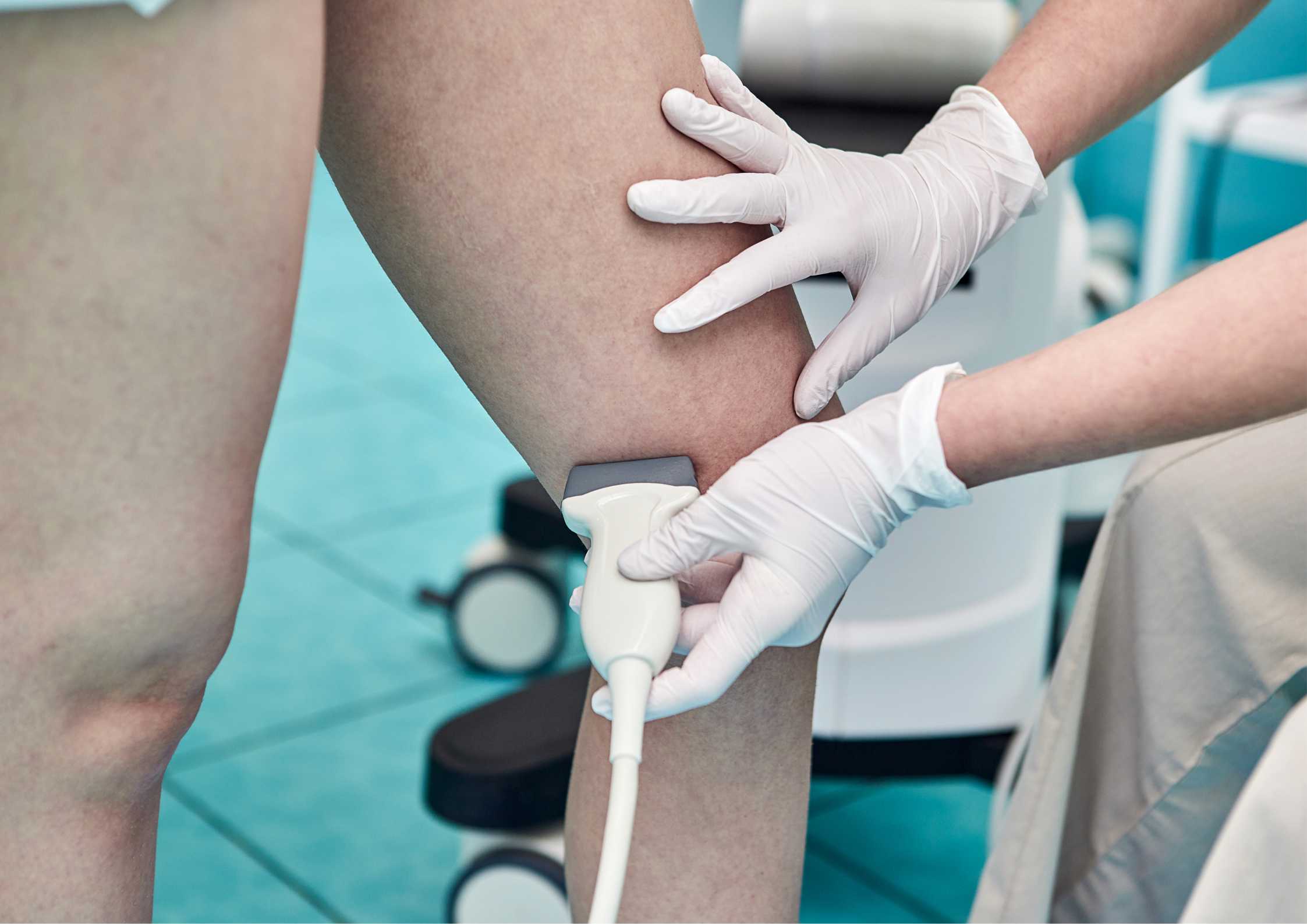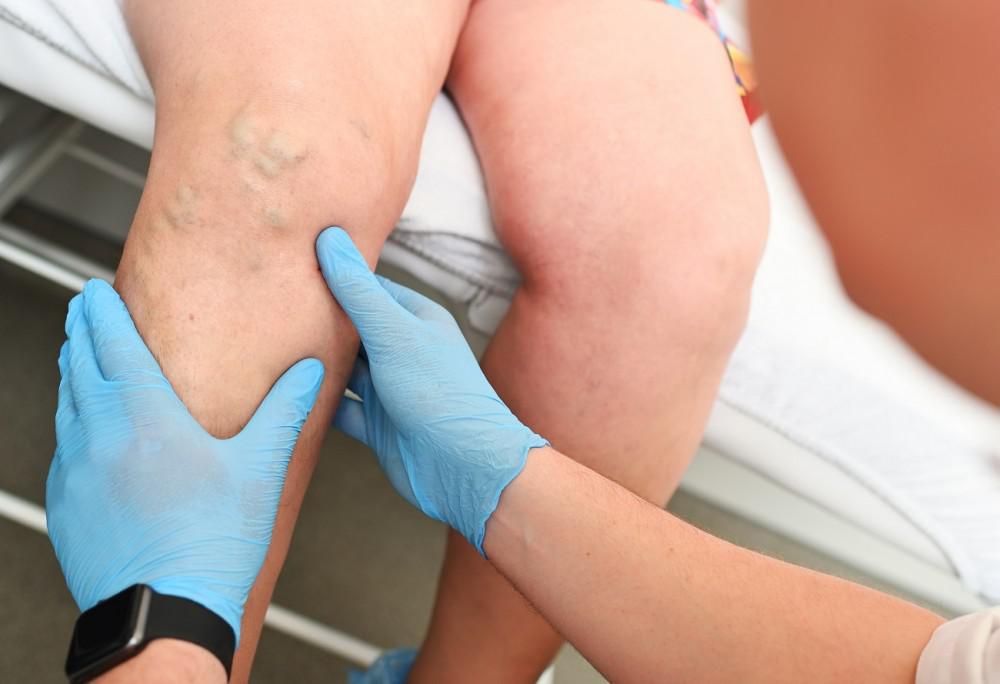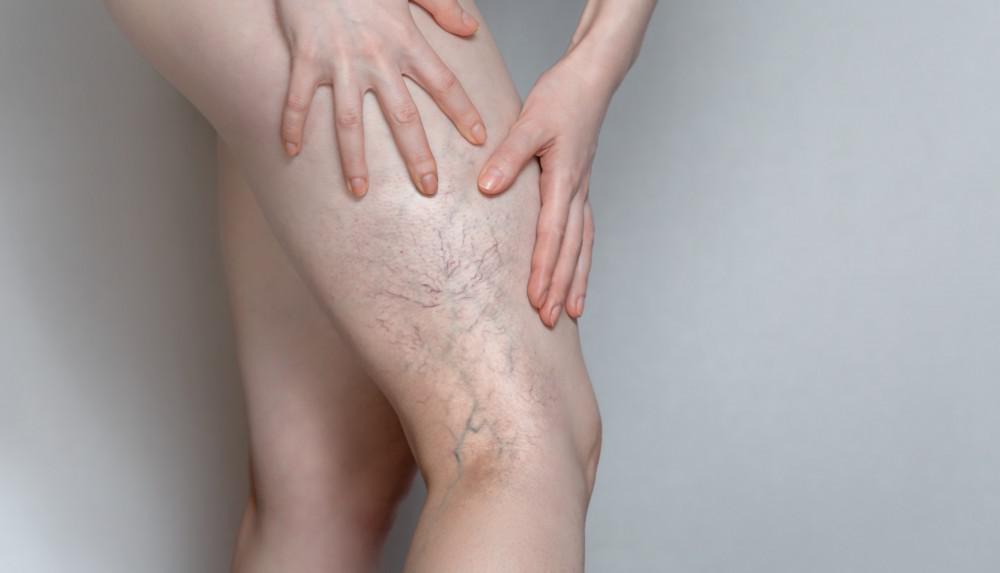Geniculate Artery Embolization (GAE) is a game-changing, minimally invasive procedure aimed at mitigating the symptoms of osteoarthritis (OA) of the knee. It’s particularly beneficial for those who haven’t found relief through conventional therapies or are not suitable candidates for surgery.
GAE works by obstructing the blood supply to inflamed nerves within the knee joint. This effectively alleviates pain, improves function, reduces inflammation, and lowers the risk of complications.
Our clinic, Texas Vascular Institute, is proud to be among a select few in Hurst offering this innovative treatment.
Understanding Osteoarthritis of the Knee
Osteoarthritis (OA) is a degenerative joint disease characterized by the breakdown of cartilage, bone spur development, and inflammation within the joint. OA of the knee stands as one of the most prevalent forms of arthritis, impacting millions globally.
If you’re suffering from OA of the knee, you might experience:
- Pain
- Stiffness
- Swelling
- Reduced range of motion
- Difficulty with walking or daily activities
Various factors contribute to OA of the knee, including age, genetics, obesity, injuries, overuse, and alignment issues. The condition can lead to serious complications such as chronic pain, disability, infection, and in severe cases, joint replacement surgery.


Traditional Treatments for OA of the Knee: An Overview
Conservative treatment options for OA of the knee primarily include medication, physical therapy, injections, the use of braces, and lifestyle changes. While these strategies can manage symptoms, they, unfortunately, do not treat the root cause nor halt disease progression.
Common side effects and drawbacks of conservative treatments include:
- Allergic reactions
- Bleeding
- Infections
- Weight gain
- Stomach ulcers
- Liver damage
- Potential addiction
When it comes to surgical interventions, arthroscopy, osteotomy, and joint replacement are standard procedures. These surgeries aim to restore joint function and appearance but come with significant risks and lengthy recovery times.
Surgical complications can include:
- Infection
- Bleeding
- Nerve damage
- Blood clots
- Loosening of the implant
- Wear and tear
- Need for revision surgery
In contrast to these conventional options, GAE provides new hope for patients by addressing the condition in a unique and effective manner. With this revolutionary treatment, we are pushing the boundaries of vein disease management, making it possible for patients to lead more comfortable and active lives.
Why Choose Geniculate Artery Embolization Over Other Options?
GAE is a groundbreaking treatment option that specifically targets the abnormal blood vessels supplying the inflamed nerves in the knee joint. This procedure works by using tiny particles, known as embolic, to block these blood vessels, reducing the joint’s inflammation and pain.
What sets GAE apart is the fact that it’s performed by an interventional radiologist using image guidance and local anesthesia. This outpatient procedure takes about an hour, does not require any incisions or stitches, and comes with a range of advantages such as:
- Immediate and long-term pain relief
- Enhanced function and quality of life
- Reduction in inflammation and swelling
- Lower risk of infection, bleeding, or nerve damage
- Faster recovery and return to everyday activities
- No need for medication or surgery
Who Should Consider GAE and Who Should Not?
GAE is indicated for those with moderate to severe OA of the knee who haven’t found success with conservative therapies or who are not candidates for surgery.
However, it’s contraindicated for patients with active infection or bleeding in the knee joint or for those with allergies to contrast dye or embolic agents.
To determine your candidacy for GAE, you would undergo a comprehensive evaluation by an interventional radiologist at Texas Vascular Institute. The evaluation at Texas Vascular Institute includes a review of your medical history along with a physical examination, blood tests, and imaging tests like an X-ray or MRI.
Based on this assessment, your interventional radiologist will discuss the benefits and risks of GAE and address any queries you may have.
What to Expect: Before, During, and After GAE
Before the GAE procedure, there are several steps you need to take. These include:
- Ceasing certain medications like blood thinners or anti-inflammatory drugs a few days before the procedure
- Refraining from eating or drinking anything for several hours before the procedure
- Arranging for transportation post-procedure
During the procedure, local anesthesia and sedation are administered for your comfort. Your interventional radiologist makes a small puncture in your groin or wrist, and a thin tube, known as a catheter, is placed into your artery.
Using X-ray guidance, the catheter is guided to the geniculate arteries supplying the knee joint. The radiologist then injects a contrast dye to visualize the blood vessels before injecting the embolic agents to block them. The doctor then removes the catheter and applies pressure to the puncture site to stop any bleeding.
After GAE, you’ll be observed for a few hours in the recovery room before being discharged. It’s normal to experience some mild pain, bruising, or swelling in the knee or groin area for a few days post-procedure.


Following the procedure, it’s important to:
- Take prescribed pain medication
- Apply ice packs to the knee or groin area as needed
- Keep the puncture site clean and dry
- Avoid strenuous activities for a few weeks
- Schedule follow-up appointments with your interventional radiologist
By following these guidelines, you can help ensure a smooth recovery and regain your normal routine faster. With GAE, it’s possible to find relief from OA of the knee and reclaim your active lifestyle.
What Results Can You Expect from GAE, and How Can You Maintain Them?
Clinical trials and research studies have repeatedly demonstrated that GAE provides significant pain relief and improved function for individuals with OA of the knee.
Here are some of the compelling findings:
- A study conducted by Okuno et al. (2015) revealed that GAE led to an average pain reduction of 58% and an average function improvement of 40% at six months after the procedure in 11 patients with OA of the knee.
- A study by Bagla et al. (2017) reported an average pain reduction of 71% and an average function improvement of 64% one year after GAE in 13 patients with OA of the knee.
- Kim et al. (2018) found an average pain reduction of 66% and an average function improvement of 53% two years after GAE in 20 patients with OA of the knee.
GAE has also been demonstrated to reduce inflammation and swelling in the knee joint and halt further cartilage damage or bone spur formation. For example:
- A study by Okuno et al. (2017) reported a significant decrease in synovial thickness and volume in the knee joint six months after GAE in 11 patients with OA of the knee.
- Bagla et al. (2018) found no progression of cartilage loss or osteophyte formation in the knee joint a year after GAE in 13 patients with OA of the knee.
Moreover, GAE has been shown to have a high success rate and a lower complication rate compared to other treatment options for OA of the knee:
- Okuno et al. (2015) reported no major complications or adverse events related to GAE in 11 patients with OA of the knee.
- Bagla et al. (2017) reported only one minor complication (transient skin rash) related to GAE in 13 patients with OA of the knee.
To maintain the positive results and outcomes of GAE, it’s important to follow some key recommendations:
- Continue a physical therapy or exercise program to strengthen your muscles and improve your mobility.
- Maintain a healthy weight and nutrition to reduce stress on your joints and prevent inflammation.
- Avoid activities or habits that may worsen your knee pain or cause injury, such as smoking, excessive alcohol consumption, or high-impact sports.
Geniculate artery embolization (GAE) is an exciting new treatment option for patients with osteoarthritis (OA) of the knee who have not responded to conservative therapies or are not candidates for surgery.
It’s a minimally invasive procedure that blocks the blood supply to the inflamed nerves in the knee joint, providing immediate and long-term pain relief, improved function, and quality of life, as well as reduced inflammation and swelling.
Performed by our seasoned interventional radiologist using image guidance and local anesthesia in an outpatient setting, GAE has many advantages over other treatment options.

If you’re considering GAE or have any questions about the procedure, we invite you to contact us at Texas Vascular Institute in Hurst at 972-798-4710 or visit our website.
We’re here to help you navigate your treatment options and make informed decisions about your health.
WHAT OUR PATIENTS
have to say
Texas Vascular Institute always appreciates feedback from our valued patients. To date, we’re thrilled to have collected 378 reviews with an average rating of 5 out of 5 stars. Please read what others are saying about Texas Vascular Institute below, and as always, we would love to collect your feedback.
Leave a Review
Amazing Practice
I'm very particular with my Healthcare and tend to be cautious with referrals to specialists. This office is amazing from the first point of contact. Their staff are friendly, professional and highly knowledgeable. Then the Dr is just as amazing as his staff, absolutely brilliant. Office manager Jessica has this office running like a well oiled machine and does so with a smile, an air of confidence, kindness and professionalism. Love this practice!!
- Richard G.

Beyond Thankful
Dr Batra and his staff are amazing! We are so grateful to have found him. Everyone is so kind and so caring and Dr Batra explains everything so well and does procedures with excellence. Beyond thankful to be under their care!!!
- Bitsy P.

Gold Standard
This is a gold standard for how a medical practice should be run. I was promptly seen at my scheduled time, my ultrasound was thorough and I received plenty of attention and care from the staff and Dr.Batra.
- Weronika L.
INSURANCE
We accept most major insurance plans. Please contact the medical office for all insurance related questions.









8330 Meadow Rd #100
Dallas, TX 75231
For Appointments: 972-798-4710
General Inquiries: 972-646-8346

809 West Harwood Rd, Suite 101,
Hurst, TX 76054
For Appointments: 972-798-4710
General Inquiries: 972-646-8346

4716 Alliance Blvd Suite #180,
Plano, TX 75093
For Appointments: 972-798-4710
General Inquiries: 972-646-8346

